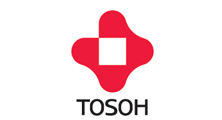HPLC analytical size exclusion chromatography (SEC) columns are widely used to determine the ratio of aggregates, dimers, monomers, and fragments in monoclonal antibodies (mAbs). Columns are expected to deliver high resolution, excellent reproducibility in a short analysis time. In order to achieve these parameters, SEC columns must have the appropriate particle size, pore size, good bonding chemistry, and suitable column dimensions. In addition, the columns must be packed well. Traditionally, SEC columns with 30 cm length are used for high resolution analysis because the length allows different molecular sizes to be separated with a longer run time. However, because of the long length, a typical analysis can take up to 30-40 minutes for each analysis. With the demands for high sample throughput, there is a need for shorter analysis time. There are many available SEC columns with 15 cm length currently available for this usage. However, these columns typically suffer from low resolution.






